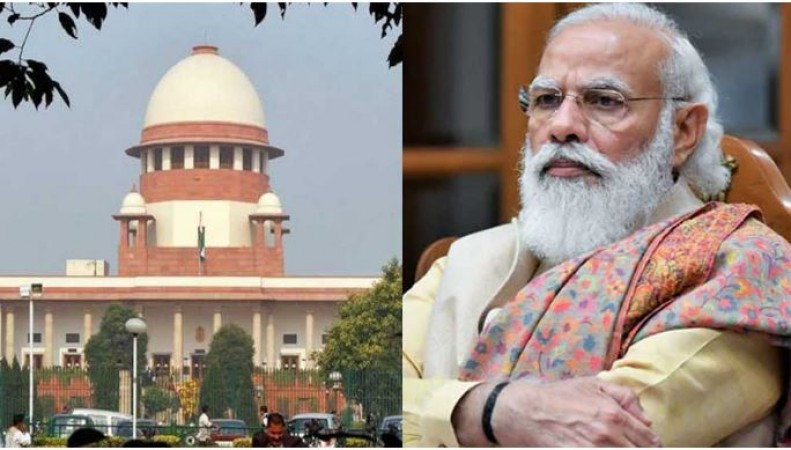
New Delhi: The bitterness between the Supreme Court and the central government seems to be increasing. Union Law Minister Kiren Rijiju has already raised serious questions on the collegium system, saying that the system of 'judge's son judge' is not right. Actually, the system is that the Supreme Court Collegium sends some names to the Central Government according to itself and out of them, the government has to make judges. But, now, the Law Ministry has returned the files sent by the Apex Court with the recommendation of appointment. The ministry has asked the Supreme Court collegium to reconsider the files. The Supreme Court had sent some files to the ministry, which were related to the appointment of judges. Among the files returned by the Centre is that of advocate Saurabh Kripal, who has openly made a statement about his gayness.
Sources familiar with the appointment process said the central government returned the files to the collegium on November 25, taking strong exception to the recommended names. In fact, the collegium headed by the then Chief Justice (CJI) of the apex court, NV Ramana, had recommended advocate Saurabh Kripal as a judge in the Delhi High Court. Saurabh Kripal is the son of BN Kripal, the CJI of the country. The name of advocate Saurabh Kirpal was sent to the Supreme Court collegium by the Delhi High Court Collegium in October 2017, but it is being told that the Supreme Court Collegium postponed the consideration of Kirpal's name three times.
Lawyer Saurabh Kripal openly admits to his gay identity:
Lawyer Saurabh Kripal, while talking to a media channel recently, had said that he feels that this happened to him because he is gay. The collegium of SA Bobde, who held the post of CJI before NV Ramana, had also reportedly deferred Kripal's name and asked for more information regarding him. However, later after NV Ramana became the CJI, the recommendation to make advocate Saurabh Kripal a judge was sent to the central government.
At the same time, the apex court expressed displeasure over the delay in the appointment of judges. On the delay, the court said it effectively thwarted the manner of the appointment. The Supreme Court on Monday (November 28) said that the time limit set by the bench of judges has to be followed.
The Supreme Court in its 2015 judgment had struck down the NJAC Act and the Constitution (99th Amendment) Act, 2014, restoring the existing collegium system of judges appointing judges to the supreme court. Justice Kaul said that sometimes legislation gets approval and sometimes it doesn't. But, this cannot be a reason for not following the rule of law of the country. The court noted that some names are pending before the government for one and a half years. Sometimes only one name is selected from the recommendations. The court had said that you (government) are effectively thwarting the method of appointment.
Kiren Rijiju had raised questions on the collegium system:
Let us inform you that, Union Law Minister Kiren Rijiju recently termed the Supreme Court Collegium as an alien. Opposing the collegium system, the Union minister had said that the government respects the collegium system until it is replaced by another system. Union Law Minister Kiren Rijiju had also said that the collegium has flaws and is not transparent. He said, ''If it is so, don't send the file to the government. You appoint yourself, you run your own show, and the system doesn't work. The executive and the judiciary will have to work together.''
Does it make any sense? Former cricketer questions Team India's selection
Gujarat AAP chief calls Hindu rituals BULLSHIT! Gopal Italia's VIDEO surfaced
Cold wave grips J&K, temperature dips to 'below-zero' across Valley